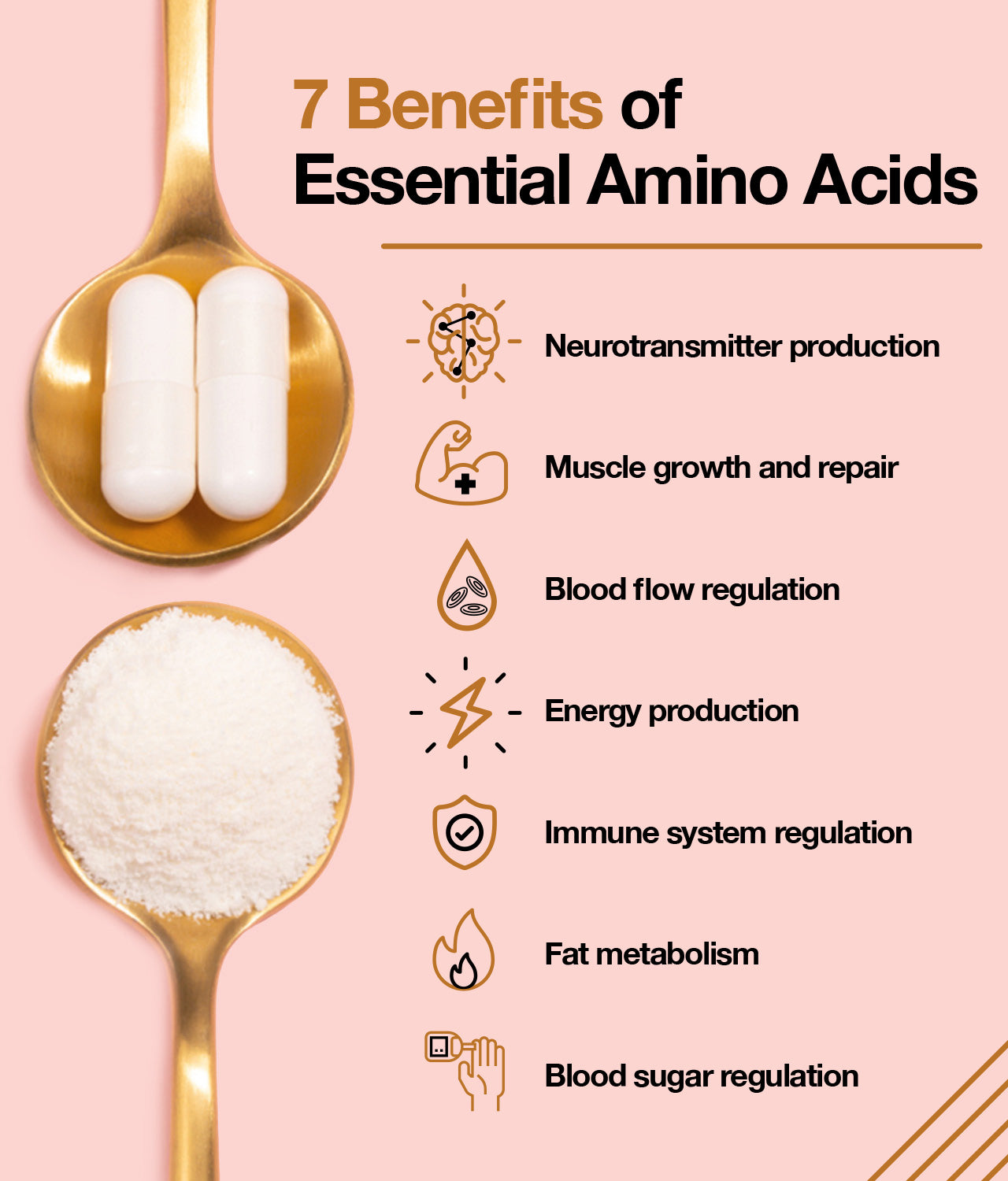Do You Need to Take Amino Acid Supplements?
 By: by Amino Science
By: by Amino Science

While the main responsibility of dietary amino acids is to serve as building blocks of protein, there has been growing interest in identifying functional benefits of individual amino acids that go beyond this role. Although more than 300 amino acids are listed in the Practical Handbook of Biochemistry and Molecular Biology, only 20 different amino acids are incorporated into body proteins. Of these 20 amino acids, 9 are considered essential amino acids (EAAs) because they are not synthesized in the body and must be obtained through diet or supplementation. It is these amino acids we are concerned with when we talk about amino acid supplements.
Amino Acids Drive Protein Turnover
Proteins in the body are in a constant state of breakdown and resynthesis (turnover). Some of the amino acids released as a consequence of protein breakdown are irreversibly oxidized (damaged as a result of being chemically combined with oxygen) and thus not available for reincorporation into newly synthesized proteins.
Dietary amino acids are therefore necessary as precursors for the production of new proteins to ensure that the rate of protein synthesis is balanced against the rate of protein breakdown. Because of this finely tuned process, we're able to maintain a constant level of protein within the body.

So, the question isn’t if you need dietary amino acids—because we can’t live without them. Rather, the question is if we need to supplement our normal dietary intake of protein sources with an amino acid supplement.
Why Essential Amino Acid Supplements Are a Must-Have
Essential amino acids (EAAs) are the only macronutrients required for long-term survival. Surprisingly, we can live almost an entire lifetime without eating any carbohydrates and go 6 months or more without ingesting any fats. Proteins, however, can't be stored in the body, and EAAs are the “active” components in dietary protein that help activate protein synthesis.
A healthy diet containing high-quality proteins should deliver adequate amounts of EAAs to meet minimal requirements. However, amino acid supplementation can provide benefits not achievable with even high-quality protein sources.
Essential amino acid supplements can play a crucial role in optimal amino acid and protein nutrition, as they stimulate muscle tissue protein synthesis to a greater extent than any protein in its whole form, from animal protein to soy protein and protein shakes.
In addition, gram for gram, EAAs are at least 3 times as effective as whey protein powder in stimulating muscle protein synthesis. This is due in part to the body’s rapid and complete absorption of free-form EAAs; peak concentrations are much higher and achieved more rapidly than those seen with intact protein.
Further, the relative amounts of each EAA in a dietary supplement can be formulated to optimally stimulate muscle tissue protein synthesis in specific circumstances, such as during exercise or recovery from surgery. The ability of these specially formulated amino acid mixtures to repair muscle damage and accelerate muscle growth in these situations can be indispensable.
For instance, a special group of EAAs known as branched-chain amino acids, or BCAAs, has been found to aid in muscle building efforts by increasing the amount of time you’re able to exercise and decreasing post-workout muscle soreness.
Every time you exercise, your muscles rely on glycogen to help fuel their efforts. Glycogen is a type of complex carbohydrate made up of glucose molecules. As your muscles burn through their stores of glycogen, more and more lactic acid is created as a byproduct, and this can cause muscle soreness.

This is where EAA supplements formulated with optimal levels of BCAAs can make a substantial difference, particularly for those engaged in high-intensity and endurance exercise. Taken especially pre-workout, this group of three amino acids—leucine, isoleucine, and valine—has the ability to raise your body’s lactate threshold, or the point at which lactic acid begins to accumulate faster than it can be removed.
In addition, BCAAs can also help with issues related to glycogen depletion—which results in extreme fatigue and an almost complete loss of energy—by helping to preserve skeletal muscle glycogen stores.
And for those interested in weight loss or experiencing issues with blood sugar control or insulin resistance, take heart. The beneficial effects of essential amino acid supplements can be achieved with minimal caloric intake, which means you can stay on track with your healthy weight goals.
The beneficial effects of essential amino acid supplements have been demonstrated with doses less than 4 grams, which is equivalent to only 16 calories. By contrast, even high-quality dietary protein sources contain 50% or more non-protein calories in the form of carbohydrates and/or fats.
Food sources of protein are also made up of more than half nonessential amino acids, which have little value in terms of stimulating protein synthesis. In fact, consuming approximately 4 grams of EAAs in the form of whole protein sources requires 100 kilocalories, or about 5 times the calories found in an amino acid supplement.
The Best Amino Acid Supplement
Clinical trials have shown the benefits of EAAs in many areas, from increasing muscle strength and muscle mass to controlling plasma lipids, reducing liver fat (thereby improving liver function and helping to prevent fatty liver disease), and accelerating recovery from serious injury or surgery. But the composition of an essential amino acid supplement is vital, not only for stimulating protein synthesis but also for maintaining an ideal balance of all EAAs in the blood.
Just as practitioners of holistic health follow the principle of whole-body balance, so, too, should users of amino acid supplements. For it's crucial that all EAAs be provided in a dietary supplement. Consumption of formulations containing only some EAAs, including BCAA supplements, has a minimal effect on protein synthesis because this process requires adequate availability of all the EAAs.
Finally, the many other functions of amino acids, including neurotransmitter production, blood flow regulation, immune system maintenance, and lipid profile optimization, are contingent on proportionate blood levels of amino acids. For this reason, a formulation containing all the EAAs in perfect balance is the optimal amino acid supplement.



 833-264-6620
833-264-6620


















